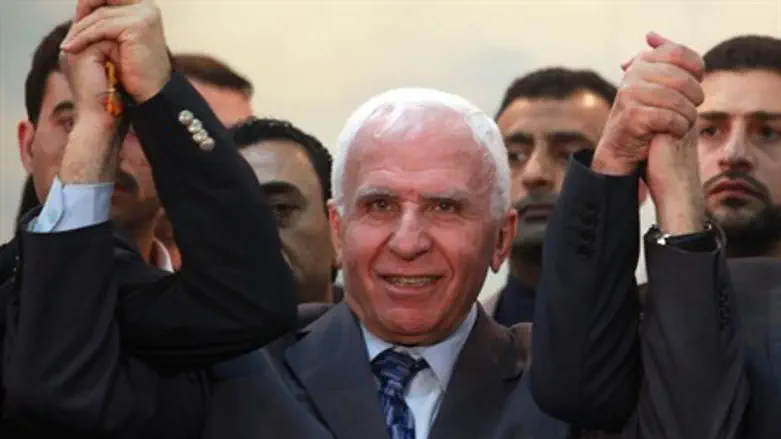
Azzam al-Ahmed, head of the Palestinian Authority (PA) delegation in the Cairo truce talks, revealed to AFP on Tuesday night what exactly was in the long-term ceasefire deal that Israel agreed to, and which went into effect at 7 p.m. that night.
The first point raised was Gaza border crossings. Under the agreement, there will be an immediate easing of restrictions on the two main crossings between Israel and Gaza to allow in aid and reconstruction supplies.
Significantly, construction materials needed to repair the water network, electricity grid and mobile phone networks will be allowed in along with humanitarian aid, food and medical supplies. It should be noted that Israel continued supplying humanitarian goods throughout most of Operation Protective Edge.
Construction materials have in the past been used to build terror tunnels to attack Israel, and therefore earlier reports signaled they would not be allowed in until the ceasefire had proven itself for a set amount of time.
The deal did not give specific details about how construction materials might be restricted, in line with the Israeli blockade on Gaza that has been in effect since 2006. It did however call for a lifting of that blockade with no clear timeline.
As for the Gaza fishing zone, restrictions will be lifted immediately to extend the zone to six nautical miles from the shore, to be extended later to 12 miles. Over the past eight years, Israel has set a six-nautical-mile limit for Gaza's fishermen when tensions were lower, restricting it to three miles when hostilities have escalated.
Israel temporarily lifted the ban on August 17, two days before Hamas breached the last truce.
During the operation fishing was canceled due to security threats, as Hamas terrorists made several attempts to infiltrate Israel by sea, and have often tried to smuggle weapons into the Hamas stronghold under the guise of fishing vessels.
The ceasefire deal likewise would have future discussions held about a swap of terrorists jailed in Israel for the bodies of IDF soldiers Second Lt. Hadar Goldin and First Sgt. Oron Shaul hy''d, who were killed in the operation.
Hamas wants hundreds of prisoners released, among them those arrested in Operation Brother's Keeper, during which the IDF cracked down on the Hamas infrastructure in Judea and Samaria while searching for three Israeli teens abducted by Hamas terrorists.
They additionally demanded the release of roughly 60 terrorists who were freed in the 2011 Gilad Shalit deal and later re-arrested, some of whom quickly returned to murderous acts of terror.
Hamas is also calling for the release of 37 Palestinian Legislative Council (PLC) members, all but two of whom are Hamas members, along with the 26 terrorists promised in the fourth batch of releases as part of the Israel-PA peace talks that broke down in April.
The Hamas demand for a Gaza sea and airport will be discussed in Cairo within the next month according to the agreement.
What will Israel get from all of this? The one major Israeli demand has been a demilitarization of Gaza, which has emerged as a terror haven since Israel's withdrawal in 2005. Apparently Israel has linked the lifting of the Gaza blockade and reconstructing the area with the disarmament of the terror groups.
The Palestinian delegation flatly refused this lone demand.
Apparently Israel will raise demilitarization and the limitation on construction materials and weapons in the next stage of talks to be held in the coming month.
